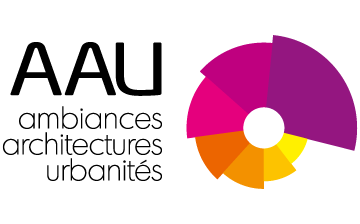Individuel dess(e)in. Quel avenir pour le parc des maisons individuelles en première couronne des agglomérations françaises face à la transition énergétique ?
Individual design. What is the future for individual houses in the inner suburbs of French cities in the face of energy transition?
Financement : Ministère de la Culture dans le cadre du programme interministériel de recherche « Architecture du XXe siècle, matière à projet pour la ville durable du XXIe siècle », 3e session.
Responsable(s) scientifique : Yann Nussaume, AMP
Contrat de recherche terminé en septembre 2021
FR
Mandataire : équipe AMP – UMR LAVUE, ENSA Paris-La-Villette
Equipes partenaires :
- AMP, UMR LAVUE ENSA Paris-La-Villette
- CRENAU, UMR AAU, ENSA Nantes
- CRESSON, UMR AAU, ENSA Grenoble
- GRECCAU, ENSA Bordeaux
- Agences d’architecture Néodomus et Chartier/Dalix
Participants CRENAU : Céline Drozd (responsable pour l’équipe), Ignacio Requena, Daniel Siret
Participants CRESSON : Magali Paris (responsable pour l’équipe), Rainer Kazig, Nicolas Tixier
Ce projet de recherche propose d’étudier l’adaptation et la transformation du parc des maisons individuelles existantes en première couronne de grandes agglomérations françaises (Paris, Nantes, Orléans, Grenoble) au regard des nouvelles exigences de confort thermique et spatial. Notre proposition vise à rendre convergentes deux séries de questionnements : d’une part, interroger la notion controversée d’obsolescence de la maison individuelle, et d’autre part, mettre en évidence les enjeux patrimoniaux de la réhabilitation de ce bâti existant.
Nous nous intéressons plus particulièrement à la manière de repenser ce patrimoine du XXe siècle à partir des méthodes d’éco-rénovation, et de la formalisation d’extensions architecturales en adéquation avec les évolutions thermiques contemporaines. Parallèlement seront prises en compte les questions soulevées par les transitions démographiques (vieillissement de la population, maintien à domicile), numériques (nouveaux usages de la maison et nouveaux services) et les changements qu’elles impliquent pour l’adaptation et la transformation de cette forme de bâti.
La recherche comprend trois volets :
- Une réflexion sur les implications des normes thermiques actuelles sur les maisons individuelles existantes, qui s’appuiera sur un travail d’inventaire localisé et sur une enquête croisant une analyse à la fois quantitative et qualitative évaluant la soutenabilité de ces habitats auprès des acteurs concernés ;
- Une étude sur la réhabilitation et la préservation possibles des qualités patrimoniales des maisons individuelles existantes au regard des enjeux environnementaux contemporains du XXIe siècle ;
- Une expérimentation projectuelle associant expertise et pédagogie et intégrant un aspect comparatif.
L’objectif, à terme, est double :
- D’une part, produire une synthèse actualisée des connaissances sur le devenir du parc des maisons individuelles en première couronne des agglomérations françaises, questionnant l’obsolescence de ce patrimoine face aux enjeux de la transition énergétique contemporaine, par des enquêtes auprès des différents acteurs concernés et par une exploration des solutions formelles et techniques par le projet ;
- D’autre part, conduire un programme de recherche en synergie interdisciplinaire entre praticiens et chercheurs, dont les résultats seront appropriables conjointement et transversalement par tous, afin d’élaborer un paysage bâti soutenable.
EN
Project funded by the French Ministry of Culture
Representative: AMP team – UMR LAVUE, ENSA Paris-La-Villette
Partnering teams:
- AMP, UMR LAVUE ENSA Paris-La-Villette
- CRENAU, UMR AAU, ENSA Nantes
- CRESSON, UMR AAU, ENSA Grenoble
- GRECCAU, ENSA Bordeaux
- Néodomus and Chartier/Dalix architecture firms
CRENAU Participants: Céline Drozd (person in charge for the team), Ignacio Requena, Daniel Siret
CRESSON Participants: Magali Paris (person in charge for the team), Rainer Kazig, Nicolas Tixier
This research project aims to study the adaptation and transformation of existing individual houses that are in the inner suburb of large French conurbations (Paris, Nantes, Orléans, Grenoble) in terms of new requirements regarding thermal and spatial comfort. Our proposition aims to converge two series of questions: on the one hand, questioning the controversial concept of obsolescence of individual houses, and, on the other hand, highlighting the heritage-related stakes of the rehabilitation of that existing built environment.
We focus more specifically on the way we can rethink this 20th-century heritage starting from eco-renovation methods and the formalisation of architectural extensions that are adapted to the contemporary thermal evolutions. Simultaneously, we will take into account the questions raised by demographic (ageing population, support at home), digital (new uses of the house and new services) transitions and the changes that they generate for the adaptation and the transformation of that form of built environment.
The study contains three elements:
- A reflection on the implications of the current thermal standards on existing individual houses, which will rely on a localised inventory task and on a survey combining quantitative and qualitative analyses that assess the sustainability of these habitats with the concerned actors;
- A study on the possible rehabilitation and preservation of the heritage qualities of existing individual houses in terms of 21st-century contemporary environmental stakes;
- A projectual experiment associating expertise and pedagogy and including a comparative aspect.
The objective is twofold:
- On the one hand, to produce an update synthesis of knowledge on the future of individual houses located in the inner suburbs of French cities, questioning the obsolescence of that heritage in the face of issues of contemporary energy transition, with surveys carried out with the different actors involved and with an exploration of formal and technical solution with the project;
- On the other hand, running a research programme in interdisciplinary synergy between practitioners and researchers, whose results will be transferable jointly and transversely by everyone, in order to develop a sustainable built landscape.
